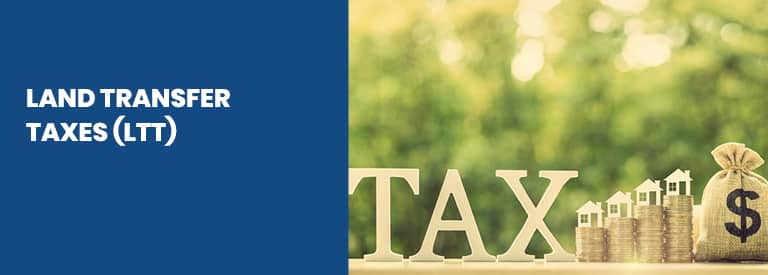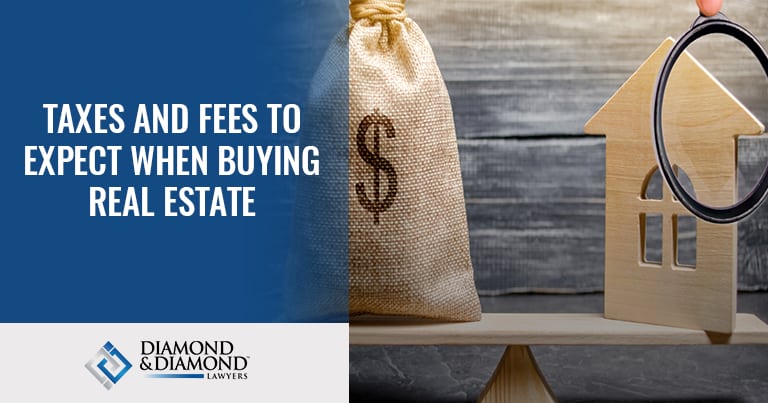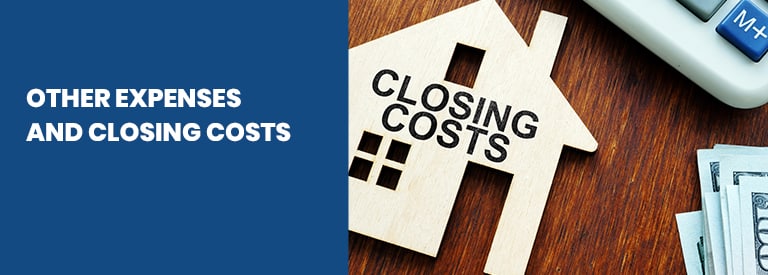People invest in real estate for various reasons. One of them is that the value often appreciates over time. Long-term gains in Canada’s property market have historically been substantial. But one thing you need to consider is how much taxes and fees you can expect to pay.
Long-term gains in Canada’s property market have historically been substantial. This is a bonus for existing homeowners and those not thinking of selling for a long time.
Buying or investing in real estate can be a significant milestone for anyone. However, purchasing property isn’t a straightforward transaction. You need to understand the taxes and fees involved when planning on buying real estate in Toronto.
Knowing all the costs involved can help you plan your budget successfully ahead of time.
Harmonized Sales Tax (HST)
Whether you’re buying a house or a condo, you are liable for Harmonized Sales Tax or HST.
- Harmonized Sales Tax is paid by both businesses and consumers.
- There is a 13% HST levied on most goods and services purchased. This is split with 5% federal tax and 8% provincial tax. (On invoices, it is listed only as 13%.)
- This tax is then paid to the Canada Revenue Agency, a federal government division. They later pay the provincial government their portion.
Although the resale of a residential property isn’t liable for HST, tax is associated with other services relating to the transaction, which the buyer and seller both need to pay. These services include moving costs, home inspection fees, legal fees, and commissions.
As a seller, you have to pay a 13% tax on the commission and legal fees. As a buyer, you’ll be responsible for tax on the home inspection fee, moving costs, and legal fees.
Land Transfer Taxes (LTT)
 Land Transfer Taxes (LTT) are payable by any buyer purchasing a condo or a house. This tax is payable on the closing day of sale. The amount is usually a percentage of the property’s price and the outstanding amount of the mortgage or debt assumed as part of the sales agreement.
Land Transfer Taxes (LTT) are payable by any buyer purchasing a condo or a house. This tax is payable on the closing day of sale. The amount is usually a percentage of the property’s price and the outstanding amount of the mortgage or debt assumed as part of the sales agreement.
When purchasing a home in Toronto, you’ll also be levied with an additional tax, which in effect is the same amount as the Ontario Land Transfer Tax.
Mortgage and Property Insurance
Mortgage Insurance
This is a policy protecting the bank or loan company if the borrower can’t make a payment or dies unexpectedly. It’s also a requirement when the prepayment is less than 20% of the purchase price.
If you’re the borrower and your deposit was 20% of the total price, your lender might still request mortgage insurance if you are unemployed or have a low credit score.
Property Insurance
This insurance includes a few policies, such as homeowners insurance, coverage for flood and earthquake damage, and renter’s insurance.
Property insurance provides the owner with coverage for property protection and in the case of any liabilities. The owner or tenant will be reimbursed in the case of theft or damage. Compensation could also be awarded to a third party if injured on the premises
In Ontario, the average cost for homeowners insurance is $1,250 per year, whereas tenants pay only $210 per year and condo owners pay about $345 per year. These costs, however, are dependent on variables such as location, size of the property, etc.
|
More Helpful Info on Real Estate |
|
|
Tips for First Time Home-Buyers |
|
|
Benefits of Investing in Real Estate |
|
|
Questions to Ask When Hiring a Real Estate Lawyer |
|
Handling a real estate transaction on your own can be risky, as there are many taxes and fees that you need to be aware of before you start. Consult an experienced real estate lawyer in Toronto — call Diamond and Diamond Law at 1-888-INFO LAW or 1-888-463-6529!

PRO Tip
“Getting a home inspection can be a wise idea if you’re planning to buy a house in Toronto. An inspection can give you information about a home’s condition so you can make better-informed decisions and help the seller determine the value of the home.” – Company Owner.











 When closing a property sale, there are expenses that both the buyer and seller need to pay besides the actual price. The closing costs and other fees applicable in Toronto are:
When closing a property sale, there are expenses that both the buyer and seller need to pay besides the actual price. The closing costs and other fees applicable in Toronto are:


